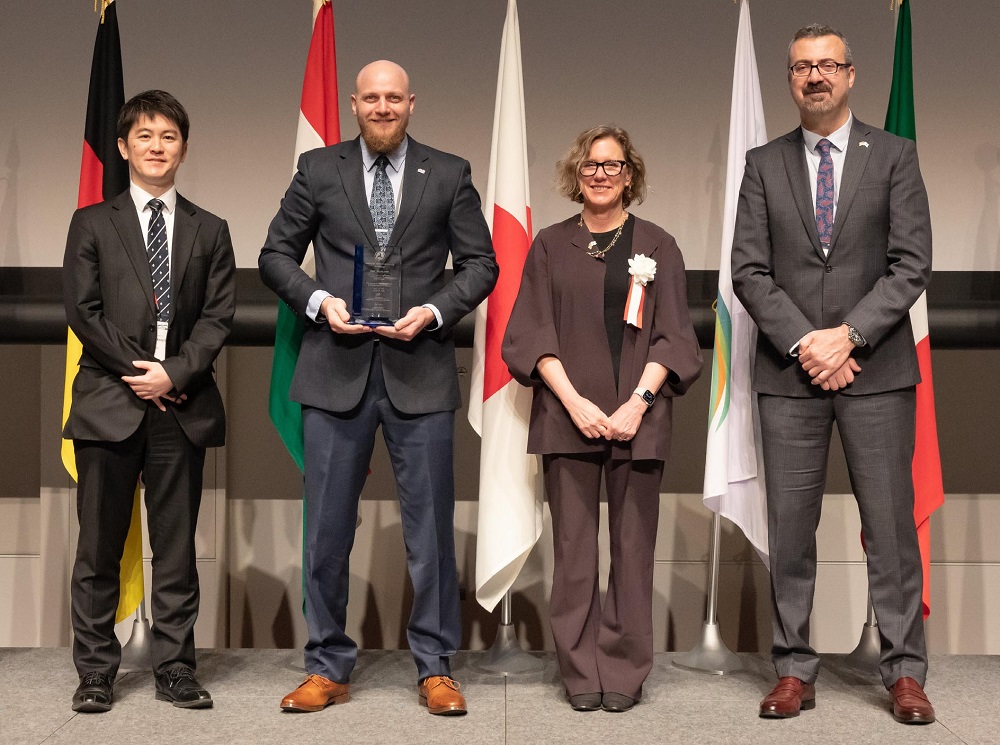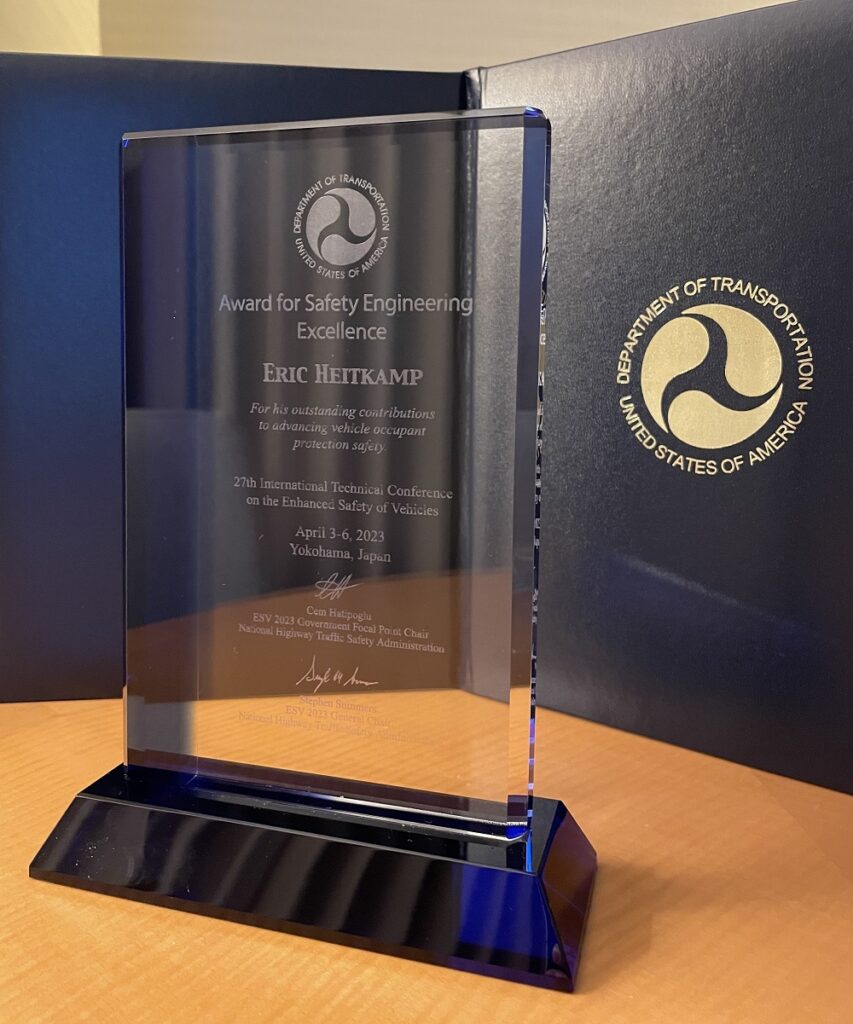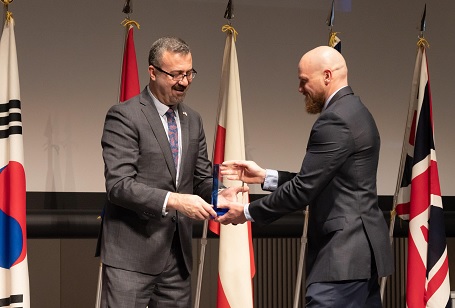 Eric Heitkamp, second from left, receives an award for Honda’s innovative air bag at the 2023 Enhanced Safety of Vehicles (ESV) conference.
Eric Heitkamp, second from left, receives an award for Honda’s innovative air bag at the 2023 Enhanced Safety of Vehicles (ESV) conference.
At 18, Eric Heitkamp would never have predicted he would one day receive an international safety award.
But last month, the North American Auto Development Center (ADC) chief engineer and technical leader in the Crash Safety Department traveled to Japan to collect the U.S. Government Safety Engineering Excellence Award at the 2023 Enhanced Safety of Vehicles (ESV) conference for a groundbreaking new front passenger airbag currently used in the Acura TLX, MDX and Honda Pilot.
“I grew up in Coldwater, a small town in Ohio west of Bellefontaine near the Indiana boarder,” Heitkamp said. “I graduated in a class of 97 students. I didn’t even know if I wanted to go to college. But my brother went to college, and he inspired me. I thought if he can do it, I can do it.”
Heitkamp chose engineering, studied at The Ohio State University and landed a co-op term at Honda, clocking in for the first time in 1999. “I would never have predicted this in my life,” he said. “It’s crazy. I don’t view myself as being the smartest dude out there. It’s all about finding your talent, applying yourself and work hard when necessary.”
Good mentors were also a part of Heitkamp’s success.
“I had really good influencers when I was a young engineer,” he said. “I learned from (Honda engineers) Bryan Hourt and Matt Seman. Being under their wings for years really set me up for success. This award really builds on all the people who have influenced me and have gotten me to where I am today.”
The award recognizes Honda’s innovative airbag that focuses on decreasing the chance of serious brain injury and acts like a catcher’s mitt, catching and decelerating the of passenger’s head during a crash. The research and development took over five years and had challenges.
“This award is a cherry on top of it all,” Heitkamp said. “Larry Geise (at the time Frame Division VP & R-Theme evaluator, now ADC center lead) fully supported this research activity. At the research planning report, I told him we wanted to target the 2021 MDX, and when he said he wanted to launch it with the 2020 TLX, my head almost hit the table. I wasn’t sure how we would do it. But we did it thanks to the backing of executive leadership and perseverance. It’s not only our dream, but also Honda’s dream.”

And it took a big team to make that dream come true. Heitkamp said there are many names that should be included on the award, including engineer Jason Hardesty, a passionate young engineer who Heitkamp hopes was inspired by working on the development of the airbag.
“So many people had a hand in making this a reality,” Heitkamp said. “The team at ADC on the Safety Department side worked with me on the technology. Without them this wouldn’t be possible. And it wouldn’t have happened without Larry Rose at Autoliv (Honda supplier). He is a super intelligent guy and was very instrumental in getting this technology through Autoliv.”
The work was worth it because Heitkamp said he, like other engineers in the Crash Safety Department, carry a deep passion for keeping customers safe on the road. Knowing the airbag could save lives gives Heitkamp great pride in his work.
“I put a lot of energy into my job and it’s because I’m thinking about our customers,” he said. “You always have to keep the human (not crash test dummies) and customer in mind. It’s a source of passion and for everyone in the Safety Department, saving lives is a big deal.”
At the ESV conference in Japan, Heitkamp saw statistics that demonstrate how safety work is very important. The number of fatalities on the road is increasing, strengthening the need for active and passive safety innovations. In fact, according to the Centers for Disease Control and Prevention, 1.35 million people are killed on roads around the world each year, or about 3,700 people each day – many of them pedestrians, cyclists and motorcyclists. In North America, the last two years of reported fatalities have observed an increase. In 2021, NHTSA reported 42,915 fatalities on U.S. roadways.
“We need to continue to pursue improved technology like this airbag,” Heitkamp said.
The conference brought together experts from across the world to collaborate as well as suppliers showcasing new technology. “The conference is a unique opportunity where you have the global experts all in one spot and you can get different perspectives from different countries and hear about their unique challenges,” Heitkamp said. “If you love to innovate – and I do – it’s the perfect opportunity to start getting those innovative juices going.”
Heitkamp hopes to continue new safety research that could help Honda save more lives and take a big step to Honda’s vision of a zero-traffic-fatality future.

